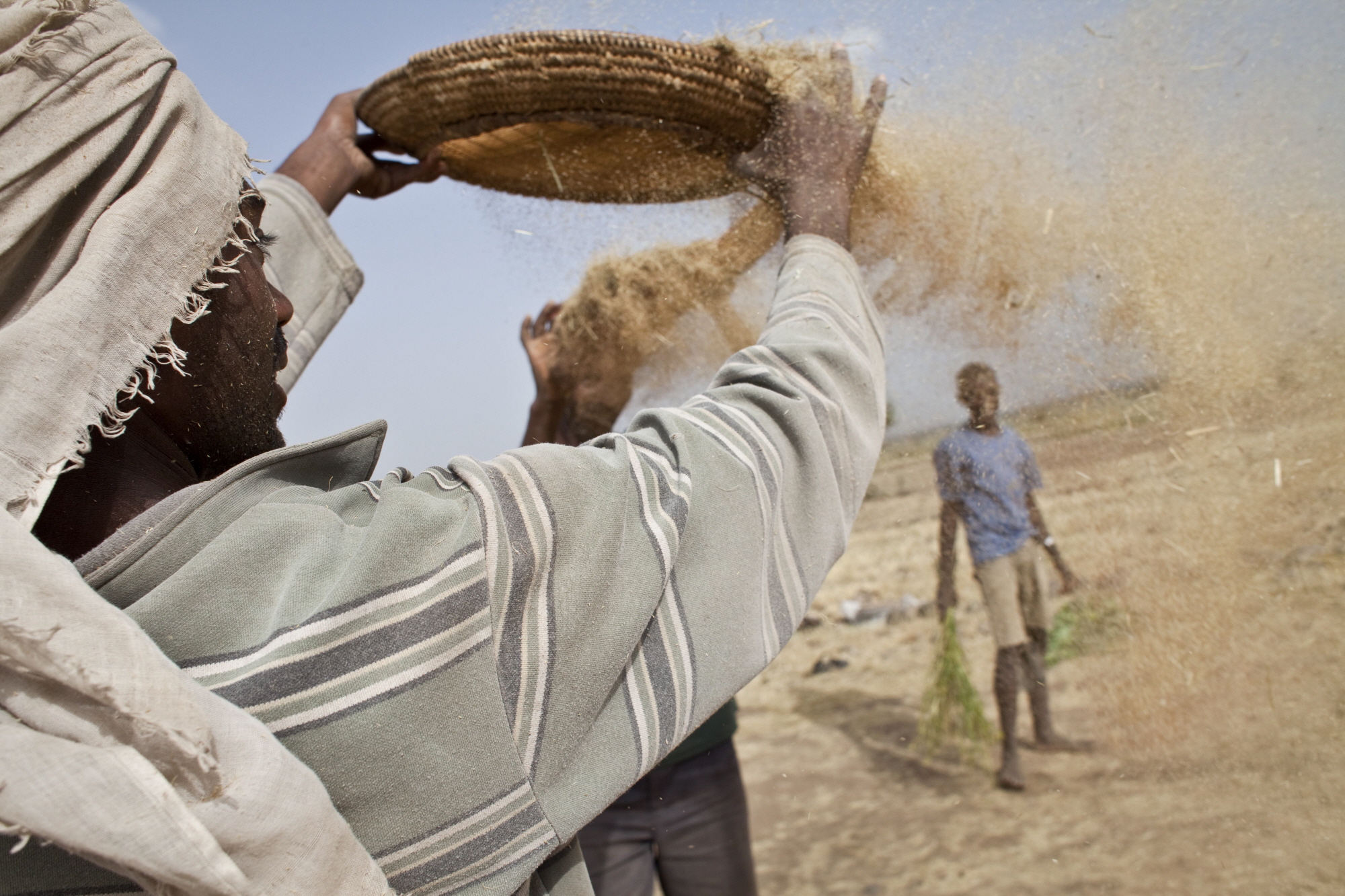
Four food crops - wheat, maize, rice and soybean - provide two-thirds of the world’s food supply. This begs the question: What has become of the thousands of other crops that farmers have been producing for centuries?
These are what we might call the “Forgotten Crops”, also referred to as neglected and underutilized species, indigenous foods, orphan crops or future foods. Forgotten crops and the foods derived from them have immense nutritional, cultural and consumer significance. They provide healthy foods for local communities which underpin their traditional practices. They afford them resilience to changing weather patterns, climate change, pests and diseases, thanks to their inherent robustness. What’s more, they constitute rich diversity in agro-ecosystems and landscapes, and protect farmers’ livelihoods by giving them a greater number of species to choose from when rotating their crops.
Yet, the smallholder farmers and indigenous people who have for centuries been custodians of this rich biodiversity have been left behind by formal agricultural research. Despite their long, painstaking work to select, conserve and improve these crops, most remain neglected, under-resourced, and underutilized in the broader global food system, and their knowledge systems disregarded. As a consequence, their use has declined over time due to negative social perceptions, pervasive impact of policies, lack of interest from research institutions, limited awareness of their value among consumers, and challenges in establishing markets and end-uses.
Partners in GFAR working in the area of Forgotten Foods believe there is a need for a sustainable model for agricultural production—a model that puts the health of humanity and the planet at the heart of the global agri-food system. Crucially, farmers themselves must drive the needed transformation as the main agents of change, with agricultural diversification as the focus for innovation. Farming communities need to be the recognized custodians of knowledge, agents of change and partners for innovative practices and products to make transformation sustainable. They must also be empowered to derive fair returns to guarantee their long-term success and livelihoods.
To set in motion a fundamental change in the processes of knowledge generation and governance around these crops, GFAR has formed partnerships with seven organizations, namely the Asia-Pacific Association of Agricultural Research Institutions (APAARI), the Asian Farmer Association for Sustainable Rural Development (AFA), the MS Swaminathan Research Foundation, the Barli Development Institute for Rural Women , the Association of Agricultural Research Institutions of Near East and North Africa (AARINENA), the Alliance of Bioversity International and CIAT, the Forum for Agricultural Research in Africa (FARA). Within their respective global regions, these Partners in GFAR are now coming together to capture shared values, operational principles and concrete strategies that can help smallholders to localize actions and policies within their own communities and countries.
AFA has started working with 18 farmers’ organizations from 18 locations across Asia-Pacific to collect input for an upcoming regional consultation in the form of a webinar. AFA is also currently administering an Online Farmer Perception Survey on Traditional Food Crops Across Asia-Pacific translated into 12 languages to be filled in by the region’s farmers, facilitated by farmers’ organizations. The survey will aid in further investigating the relationship they have with their traditional food crops, the challenges they have cultivating them and what type of support they receive or would like to receive going forward. This survey is in addition to ongoing phone interviews targeting women and youth farmers. Using this feedback, a Regional Manifesto for Asia-Pacific—as well as subsequent Manifestos for Sub-Saharan Africa and the Middle East and North Africa—will be drafted to provide public declarations of intentions to rapidly accelerate the wider adoption of more biodiverse food systems.
The next step will be to organize a workshop of key stakeholders that includes representatives from across the whole value chain involved with Forgotten Foods. Through this wider engagement, stakeholders will review and agree to a single, harmonized Manifesto and establish a Community of Practice for Forgotten Foods. Its outputs will be agreed actions, deliverables and timelines for a draft Global Plan of Action for Forgotten Foods.
Using the agreed Manifesto and draft Plan of Action, the CoP will then initiate a global engagement with stakeholders and potential sponsors involved with Forgotten Foods. Using GFAR’s global network, the CoP will employ a range of participatory methods to finalize the Global Plan of Action for Forgotten Foods.
Ongoing Global Consultations on Forgotten Foods
| Hosting Organisation | Date (to be) Held | Stakeholder Workshop |
|
FARA |
20/05/2021 | Development of Africa Manifesto and Plan of Action on Forgotten Foods |
| APAARI | 28/05/2021 |
Regional Consultation on Forgotten Foods in Asia-Pacific; Developing a Regional Manifesto |
To learn more about how the Global Forum, in its unique position, is helping provide an innovative, multi-stakeholder way of working together to bring the Forgotten Foods agenda to the frontline of sustainability and climate change discussions:
See these related resources:
GFAR joins IFAD and partners to imagine a new frontier for food
